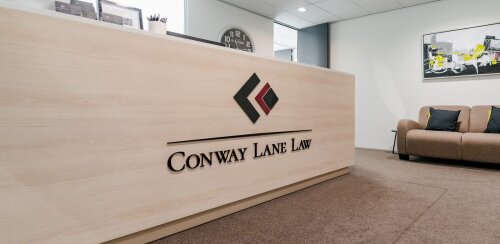Best Labor Law Lawyers in Rangiora
Share your needs with us, get contacted by law firms.
Free. Takes 2 min.
List of the best lawyers in Rangiora, New Zealand
1. About Labor Law Law in Rangiora, New Zealand
Labor law in New Zealand governs the rights and duties of workers and employers across all sectors. In Rangiora, a town in the Canterbury region, employment matters generally follow national laws and regulatory oversight by central government agencies. Common issues include pay, leave, dismissal and workplace safety, with local support from Rangiora-based solicitors and employers.
Legal protections apply to full-time, part-time, casual and seasonal workers in Rangiora. Written agreements are common, but many disputes rely on statute and case law rather than contract text alone. A solicitor experienced in Labour law can explain how these rules apply to your situation and help you navigate negotiations or a dispute.
Official information about worker rights and obligations is available from Employment New Zealand at employment.govt.nz.
For the legal text of the Acts, see legislation.govt.nz.
2. Why You May Need a Lawyer
There are several concrete scenarios in Rangiora that commonly require legal advice. A local solicitor can help you navigate the NZ framework, negotiate with your employer, or prepare for a formal hearing.
- Unfair dismissal from a Rangiora retailer or small business: If you suspect procedural flaws or lack of evidence, a lawyer can help assess eligibility for reinstatement or compensation.
- Wage underpayment or incorrect overtime for a Canterbury hospitality worker: If you were paid less than the minimum wage or missed overtime, a lawyer can help demand back pay and ensure future compliance.
- Health and safety concerns in a Rangiora workplace: If a worker is injured and the employer failed to meet duties under the Health and Safety at Work Act 2015, a lawyer can advise on compensation and enforcement steps.
- Casual to permanent conversion: A Rangiora worker on casual hours seeks permanency or job security; a lawyer can review contracts and rights under the ERA and Holidays Act.
- Discrimination or harassment at work: An employee who experiences discrimination or harassment can seek remedies via national or human rights processes; a lawyer helps with investigations and remedies.
3. Local Laws Overview
New Zealand labour law is national, but local practice in Rangiora mirrors Canterbury’s economy and workplaces. The key statutes govern relationships, leave, safety and enforcement across the region. When disputes arise, the Employment Court may become involved, and WorkSafe or MBIE agencies provide compliance oversight.
- Employment Relations Act 2000 - Establishes the framework for fair and good faith dealings between employers and employees, including written employment agreements and dispute resolution. It commenced in 2001 and continues to govern most workplace relationships in Rangiora. See Legislation NZ - Employment Relations Act 2000.
- Holidays Act 2003 - Sets minimum entitlements to annual leave, public holidays and long service leave. Enacted in 2003 with commencement from 2004 and ongoing amendments. Official information is available on Employment New Zealand and on Legislation NZ - Holidays Act 2003.
- Health and Safety at Work Act 2015 - Creates duties for employers and workers to identify and manage workplace hazards. The act took effect in 2016, with enforcement by WorkSafe NZ across Canterbury including Rangiora. See Legislation NZ - Health and Safety at Work Act 2015.
Recent changes emphasize enforcement and compliance in pay practices and safety management. For current text and guidance, consult official sources:
Official texts and guidance: Legislation NZ and Employment New Zealand. For safety matters, see WorkSafe NZ.
4. Frequently Asked Questions
What is the Employment Relations Act 2000 and how does it affect me in Rangiora?
The ERA 2000 sets out fair and good faith interactions between employers and employees, including how agreements are formed and disputes resolved. It applies nationwide, including Rangiora. See Employment NZ or Legislation NZ for the full text.
How do I know if I am an employee or a contractor in Rangiora?
NZ uses several factors such as control, ability to subcontract, and how work is integrated into the business. A solicitor can assess your contract and conduct to determine status and entitlements.
What is considered unpaid wages in Rangiora and how can I recover them?
Unpaid wages include regular pay, holiday pay and overtime that the contract or law requires you to receive. A lawyer can help you recover back pay through negotiation or formal processes.
How long does it take to resolve a workplace dispute in Canterbury?
Resolution times vary. Informal negotiations may take days to weeks, mediation often 1-2 months, and formal proceedings several months to over a year depending on complexity.
Do I need a lawyer to handle a wage dispute in Rangiora?
Not always. For small disputes you may represent yourself, but a lawyer improves strategy, accuracy and chances of a favorable outcome. Consider an initial consultation.
What is the difference between an employee and an contractor under NZ law?
Employees receive statutory protections and benefits; contractors operate under different terms and may have fewer entitlements. An assessment by a solicitor clarifies status.
Can I convert a casual role into a permanent position in Rangiora?
Conversion depends on hours, tenure and the terms of your contract. A lawyer can review eligibility and advise on steps to formalize status and benefits.
What steps should I take if I think I am being underpaid?
Document hours and pay stubs, compare with minimum wage and entitlements, and contact a solicitor or Employment NZ to assess back pay and future compliance.
Is there a formal process to file a health and safety complaint in Rangiora?
Yes. Raise concerns with your employer first; if unresolved, contact WorkSafe NZ. A lawyer can help prepare evidence and submissions for enforcement or remedy.
What costs are typical when hiring a Labour law solicitor in Rangiora?
Fees vary by matter and firm. Many offer initial consultations and some provide fixed-fee options for defined tasks. Ask for a written estimate upfront.
What is the typical timeline for a workplace dispute to reach a hearing?
Timelines depend on the case and court calendars. A straightforward claim may reach a hearing within six to twelve months; more complex matters can take longer.
What resources exist in Rangiora for initial legal information on employment rights?
Official information is available from Employment NZ and WorkSafe NZ; Canterbury Community Law centers offer free initial guidance on basic rights and processes.
5. Additional Resources
- Employment New Zealand - Official government service providing information on employee rights, wages, holidays and minimum standards. employment.govt.nz
- WorkSafe New Zealand - Regulates workplace health and safety, provides guidance on hazard management and enforcement actions. worksafe.govt.nz
- Legislation NZ - Official source for NZ statutes and amendments, including the Employment Relations Act, Holidays Act and Health and Safety at Work Act. legislation.govt.nz
6. Next Steps
- Identify your issue and gather documents such as your employment agreement, pay slips, time records and any correspondence with your employer. Do this within 3-7 days.
- Review official resources to understand your entitlements and obligations. Use Employment NZ and WorkSafe NZ to verify rights before seeking advice. Allocate 1-2 days for this step.
- Find a Rangiora based employment lawyer or solicitor with Labour law experience. Check recent client reviews, ask for a scope of work and fees. Schedule consultations within 1-2 weeks.
- Prepare for the consultation by listing facts, dates, and desired outcomes. Bring documents and a list of questions. Plan for a 60-minute meeting.
- Attend the consultation, obtain a clear plan and cost estimate. Decide whether to engage the lawyer and sign an engagement letter if you agree. Expect this within 1-3 weeks after the consultation.
- If engaged, follow your lawyer's plan for negotiation, mediation or a formal process. Communicate promptly and provide any requested information. Timelines will depend on the chosen path, often 1-3 months for mediation and longer for court proceedings.
Lawzana helps you find the best lawyers and law firms in Rangiora through a curated and pre-screened list of qualified legal professionals. Our platform offers rankings and detailed profiles of attorneys and law firms, allowing you to compare based on practice areas, including Labor Law, experience, and client feedback.
Each profile includes a description of the firm's areas of practice, client reviews, team members and partners, year of establishment, spoken languages, office locations, contact information, social media presence, and any published articles or resources. Most firms on our platform speak English and are experienced in both local and international legal matters.
Get a quote from top-rated law firms in Rangiora, New Zealand — quickly, securely, and without unnecessary hassle.
Disclaimer:
The information provided on this page is for general informational purposes only and does not constitute legal advice. While we strive to ensure the accuracy and relevance of the content, legal information may change over time, and interpretations of the law can vary. You should always consult with a qualified legal professional for advice specific to your situation.
We disclaim all liability for actions taken or not taken based on the content of this page. If you believe any information is incorrect or outdated, please contact us, and we will review and update it where appropriate.









